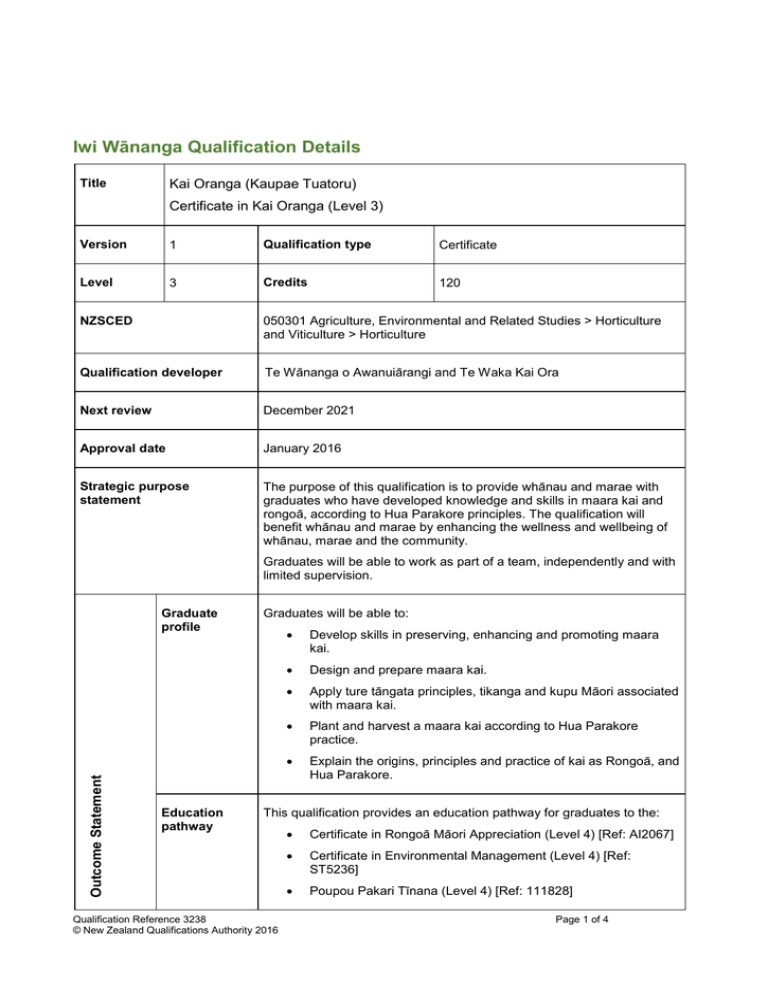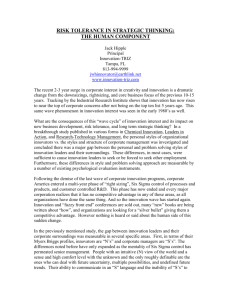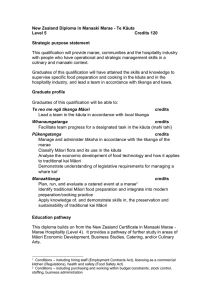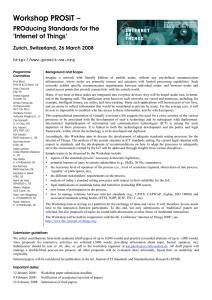Wānanga Qualification Details Iwi Kai Oranga (Kaupae Tuatoru)
advertisement

Iwi Wānanga Qualification Details Title Kai Oranga (Kaupae Tuatoru) Certificate in Kai Oranga (Level 3) Version 1 Qualification type Certificate Level 3 Credits 120 NZSCED 050301 Agriculture, Environmental and Related Studies > Horticulture and Viticulture > Horticulture Qualification developer Te Wānanga o Awanuiārangi and Te Waka Kai Ora Next review December 2021 Approval date January 2016 Strategic purpose statement The purpose of this qualification is to provide whānau and marae with graduates who have developed knowledge and skills in maara kai and rongoā, according to Hua Parakore principles. The qualification will benefit whānau and marae by enhancing the wellness and wellbeing of whānau, marae and the community. Graduates will be able to work as part of a team, independently and with limited supervision. Outcome Statement Graduate profile Education pathway Graduates will be able to: Develop skills in preserving, enhancing and promoting maara kai. Design and prepare maara kai. Apply ture tāngata principles, tikanga and kupu Māori associated with maara kai. Plant and harvest a maara kai according to Hua Parakore practice. Explain the origins, principles and practice of kai as Rongoā, and Hua Parakore. This qualification provides an education pathway for graduates to the: Qualification Reference 3238 © New Zealand Qualifications Authority 2016 Certificate in Rongoā Māori Appreciation (Level 4) [Ref: AI2067] Certificate in Environmental Management (Level 4) [Ref: ST5236] Poupou Pakari Tīnana (Level 4) [Ref: 111828] Page 1 of 4 Employment and Cultural pathway This qualification provides an employment pathway for graduates wanting to gain entry-level roles in horticulture, environmental and commercial maara kai operations. This qualification provides a cultural pathway for graduates wanting to extend themselves in kaitiaki roles at an introductory level in maara kai and rongoā contexts. Guiding kaupapa Whanaungatanga Whanaungatanga is expressed by graduates building maara kai to share with their iwi, hapū, whānau, marae and other communities. Whanaungatanga will also be expressed by fostering relationships with communities in order to pass on their skills and knowledge of maara kai. Manaakitanga Manaakitanga is expressed by providing food that is locally grown for iwi, hapū, whānau and marae communities that is free from genetic modification (GM), nanotechnology, chemicals and pesticides. Manaakitanga is also expressed by ensuring the integrity of maara kai is maintained, that the duty of care is sustained of the maara kai and that the practices within maara kai are revived alongside preservation of āhuatanga and tikanga Māori. Pūkengatanga The presence and expression of maara kai knowledge and skills will be shared collectively within iwi, hapū, whānau, marae and other communities. Graduates will have developed introductory skills, knowledge, values and beliefs to express and explore their own design and maintain a maara kai and gain Hua Parakore authentication from Te Waka Kai Ora. Kaitiakitanga Graduates will express kaitiakitanga by managing the care, protection and integrity of the iwi, hapū, whānau and whenua in which maara kai is produced. Graduates will be able to embed āhuatanga and tikanga Māori in a sustainable way, using natural resources. Rangatiratanga Rangatiratanga is expressed by iwi, hapū, whānau and marae growing their own maara kai and maintaining the mauri and security of maara kai. Te Reo Graduates will express Te Reo by developing a basic vocabulary of kupu Māori during the: Qualification Reference 3238 © New Zealand Qualifications Authority 2016 Page 2 of 4 - delivery and teaching of the programme - maara kai situations - preparation of kai - cooking of kai - serving of kai They will also have a vocabulary of kupu Māori (dialect-dependent) associated with kai as rongoā. Qualification Specifications Qualification award Te Whare Wānanga o Awanuiārangi Evidence requirements for assuring consistency Internal and external moderation reports. Graduate data. Graduate destination data Programme completion data and course results Relevant MMEQA external evaluation and review data Programme, course and staff evaluation reports Benchmarks with other legislated Wānanga Other evidence as seen applicable Minimum standard of Achieved achievement and standards for grade endorsements Other requirements for the qualification (including regulatory body or legislative requirements) Level 3 numeracy and literacy skills General conditions for the programme leading to the qualification General conditions for programme The programme is to be delivered in accordance with the guiding kaupapa o Te Whare Wānanga o Awanuiārangi. Ture Tikanga must be applied as relevant to the mana whenua where the programme is delivered. Qualification Reference 3238 © New Zealand Qualifications Authority 2016 Page 3 of 4 Conditions relating to the Graduate profile Qualification outcomes Conditions 1. Develop skills in preserving, enhancing and promoting maara kai. (15 credits) 2. Design and prepare a maara kai. (30 credits) 3 Apply ture tāngata principles, tikanga and kupu Māori associated with maara kai. (30 credits) Ture Tāngata – Students must learn OSH requirements for safe working conditions in the gardens and working with horticultural machinery. Ture Tikanga must be applied as relevant to mana whenua. Kupu Māori are dialect dependent. 4 Plant and harvest a maara kai according to Hua Parakore practice. (30 credits) 5. Explain the origins, principles and practice of kai as Rongoā and Hua Parakore. (15 credits) Qualification Reference 3238 © New Zealand Qualifications Authority 2016 Page 4 of 4



